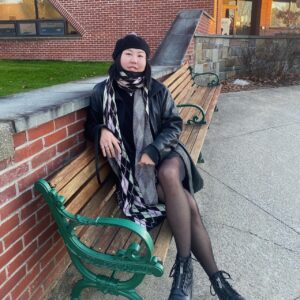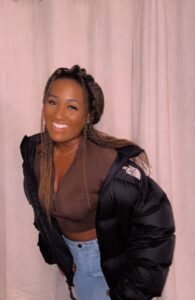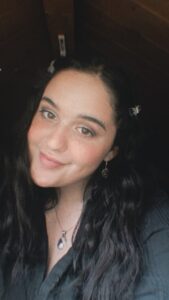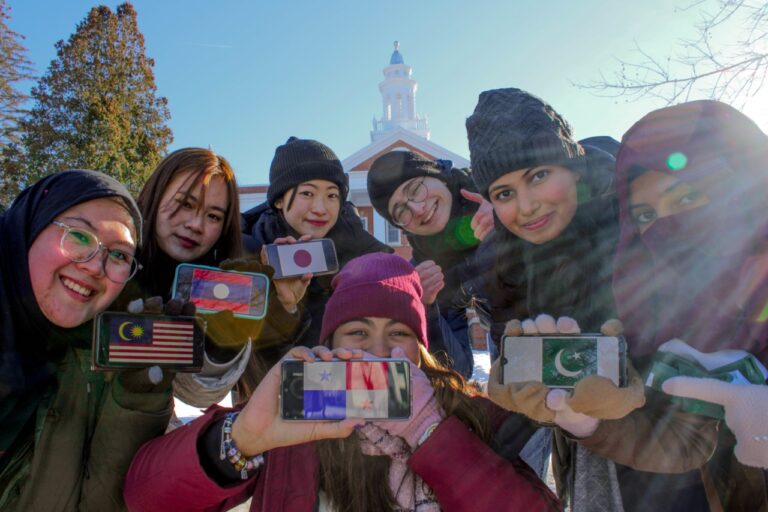Facing fetishization while dating at CU

I’ve been on Tinder for a while now.
Don’t ask me how long, I’m not really in the mood to embarrass myself (or unpack all of the reasons why).
There’s a fairly wide range of people who have swiped right on me, but among them, there’s a group that really likes to swipe right on me.
Anime lovers.
The first thought here might be “oh, okay, so do you have something in your bio that indicates that you like anime?”
The answer is no, I don’t.
Some of you might not see this as a big deal. But as an East Asian woman, I feel like I have to take note of these things.
I get putting your interests, your likes and dislikes, in your bio. I get it if watching anime is how you spend a lot of your free time. Anime is good. But to have such a large group of people in this specific community being interested in me is suspicious.
Maybe it sounds unfair of me to imply that all these people are fetishizing me. But it doesn’t feel unfair from my perspective.
I haven’t seen one person with a reference to anime in their bio that hasn’t swiped right on me. There aren’t tons of people, there aren’t that many people on Tinder in Vermont in general, but there are enough.
I’ve spent most of my life being insecure about my Asian features. Pretty much my entire childhood. I definitely wasn’t the beauty standard as a kid.
As I got older, though, I noticed a different kind of attention being paid to my features.
When I was in high school, I really liked this boy. We were hanging out and hooking up, a “thing” if you will. One day he decided to tell me that he was interested in me because I was “different” from the other girls at school. Pretty sure he used the word “exotic.” His intention was clear.
I’ve had a guy on Hinge tell me I could be a “kpop princess” and another on Tinder whose opening line was asking me where I’m from.
And this experience is not exclusive to me or to only Asian women.
This happens across the board to women of color, including Castleton senior Nadia Cox.
“I’ve been approached by different white guys on Tinder that would say that they prefer Black women,” Cox said.
Sophomore Kianna Giroux has experienced the same thing.
“A lot of the time they’ll say something about my dark skin, like “I love dark chocolate,” and stuff like that,” Giroux said.
Kameryn Norse, a senior at Castleton, has a slightly different experience.
“I have the privileged lifestyle of being a white-passing Latina, so there are a number of implicit biases that people don’t necessarily have to overcome to basically just look at me,” Norse said.
However, when people do find out she is Latina, the racially motivated pick-up lines still come regardless.
“The amount of flirtatious lines that I’ve gotten having to do with my ethnicity, or asking me to speak Spanish, that’s something that happens a lot, is just really off-putting and rather disturbing. And then from there, you’re kind of just placed in the context of general stereotypes,” Norse said.
And while this is a problem online, it’s as much a problem in real life experiences.
“I was actually here at a Castleton party, and someone came up to me, they were like, ‘oh, you are the prettiest Black woman I’ve ever seen,” Giroux said. “It frustrates me because they’re basically saying that Black women aren’t really desirable or pretty and there’s just an exception for me.”
Cox agreed, saying she has been approached at parties around campus, and the times that she has, it’s been “just red flags.”
“Guys would be like, ‘oh, I guess Black women are better in bed’ or something,” said Cox, adding, “It just shows that you don’t really care for me as a person, you just see, like, this image.”
Both Cox and Giroux have noticed that their white friends simply don’t have to worry about these things.

“It’s definitely hard seeing my friends, because most of them are white, like they’ll have a new person to talk to every couple of weeks and I’m just here struggling to find one,” Giroux said. “Sometimes I just give up because it’s very hard to find someone that’s true and genuine and not, like, looking at me for my race.”
One thing that all these women agreed on instantly was that women of color are forced to be more cautious when seeking partners.
“There are many ways in which women in general have to look out for their wellbeing while dating online and it only gets harder the more intersections you arrive at racially, ethnically, culturally,” Norse said.









